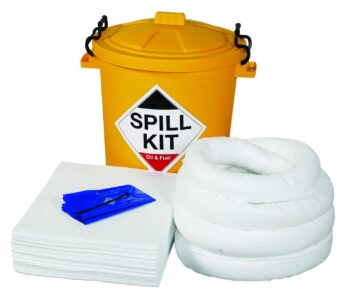 Business
Business
How to Ensure ISO 13485 Compliance: A Handbook for…
So, you’ve been appointed as a Management Representative for ISO 13485, huh? That’s a big responsibility, and we get it—it can feel a bit overwhelming at first. But here’s the thing: you’ve got this! This guide will break it down for you in a way that’s not only easy to follow but also engaging. Whether you’re new to internal audits or looking to brush up your skills, this article will give you all the insights you nereed to succeed in ISO 13485 internal auditor training.
What’s ISO 13485 Anyway?
Let’s start with the basics. ISO 13485 is a standard that sets the requirements for a quality management system (QMS) specifically for medical devices. It’s all about ensuring that medical device manufacturers meet the highest levels of safety, quality, and regulatory compliance. As a Management Representative, you’ll be the key person in your organization who makes sure everything is on track and up to standard. But, as you’ll soon learn, this isn’t just about compliance; it’s about a culture of continuous improvement.
What’s the Role of an Internal Auditor?
You might be wondering, “Why do we need auditors in the first place?” Well, imagine ISO 13485 as a blueprint for how a medical device company should run. Internal auditors are like the inspectors who make sure the building is actually being constructed according to that blueprint. They dig deep into processes, identify any gaps, and help your team stay on the path toward achieving the best possible quality management system.
You’ll have a significant role as the Management Representative in guiding the internal audit process. This will include ensuring that audits are not only completed but also that their results are analyzed and acted upon. It’s about making sure that everyone in your organization is working toward the same high-quality standards and improving continuously.
Why ISO 13485 Internal Auditor Training Is Essential
Here’s the thing—ISO 13485 internal auditor training is crucial because it provides you with the skills needed to assess your company’s adherence to the standard. But it’s more than just about ticking boxes. The training helps you:
- Understand the requirements of ISO 13485 inside and out
- Conduct thorough audits without overlooking the little things that could make a big difference
- Identify areas for improvement and recommend actionable steps
- Communicate findings effectively to management and employees
At the end of the day, internal auditors are the unsung heroes who help organizations maintain their commitment to excellence. But don’t get it twisted—this job is not a walk in the park. It takes precision, patience, and a keen eye for detail.
What You’ll Learn in ISO 13485 Internal Auditor Training
Now that you know why the training is necessary, let’s talk about what it covers. Generally, the training is designed to make you proficient in several key areas:
1. The Fundamentals of ISO 13485
To audit effectively, you first need to understand what ISO 13485 is all about. Training will start with the basics: an overview of the standard, its scope, and why it matters. From there, you’ll dive into the specific clauses and how they apply to your organization. Trust us, once you get a handle on this, things will start clicking into place.
2. The Audit Process
Auditing isn’t just about showing up and taking notes. It’s a process that requires planning, execution, and follow-up. Training will walk you through the audit cycle—pre-audit preparation, conducting the audit itself, and post-audit activities like generating reports and creating action plans.
Let’s talk about pre-audit preparation for a second. You’ll be reviewing documents, understanding procedures, and scheduling interviews with key personnel. By the time you start the actual audit, you’ll be familiar with the areas to pay special attention to, which makes things smoother when it’s time to do the actual fieldwork.
3. Interviewing Skills
As an internal auditor, you’ll need to communicate with different departments. This means you need to be a good listener and ask the right questions. It’s not about interrogating people; it’s about gathering information and getting a true sense of how things are functioning. Training will help you refine your interviewing techniques, ensuring that you get the most accurate and honest responses.
4. Writing Effective Audit Reports
A huge part of the auditing process is creating a comprehensive, clear, and actionable audit report. This can be tricky because you want to highlight areas of improvement without making it sound like a critique of the team’s effort. The best reports are constructive, showing not just where things went wrong, but offering solutions on how to make it right. Your training will emphasize how to do this effectively.
5. Corrective and Preventive Actions (CAPA)
Identifying nonconformities is one thing, but helping your organization fix them is where the real impact happens. ISO 13485 has a strong emphasis on corrective and preventive actions (CAPA). You’ll learn how to recommend corrective actions, track progress, and ensure that problems are actually being fixed (not just swept under the rug). This is one of the most critical aspects of internal auditing.
6. Managing Audits and Auditing Teams
If you’re in a position where you’re leading the audits or managing a team, you’ll need to hone your organizational and leadership skills. Your training will give you the tools to oversee audits across various departments and make sure everyone sticks to the plan. You’ll also learn how to assign roles, delegate tasks, and ensure that the audit process stays on track.
Key Skills You’ll Develop
Besides understanding the technical aspects of formación de auditor interno iso 13485, internal auditor training will help you sharpen some key skills that you can apply in any aspect of your work. Here’s a quick rundown:
- Analytical thinking: You’ll be trained to assess processes in a critical and logical way.
- Attention to detail: Auditors need to catch the smallest of errors.
- Problem-solving: Beyond identifying issues, you’ll be recommending practical solutions.
- Communication: You’ll have to communicate your findings clearly and diplomatically.
- Leadership: If you’re managing an audit team, you’ll learn how to guide and motivate them effectively.
Real-Life Impact of Internal Audits
Here’s the thing: internal audits don’t just protect your organization; they ensure that your team can deliver the highest-quality products to customers. With well-executed audits, your company can not only meet ISO 13485 compliance but can also continuously improve its processes, ultimately leading to better patient safety, fewer product recalls, and greater overall efficiency.
The Power of Continuous Improvement
Formación de auditor interno iso 13485 isn’t a one-time thing. Sure, you’ll be auditing during specific intervals, but the real benefit comes from fostering a mindset of continuous improvement. After each audit, you’ll be able to pinpoint areas that need fixing, and by acting on them, you’re building a stronger, more resilient organization.
Ultimately, the more you invest in these audits, the better your company will be at meeting its goals and exceeding customer expectations.
Final Thoughts: Ready to Get Started?
You may be feeling a bit intimidated at the thought of your first internal audit—but trust us, it’s a learning process. With the right training and preparation, you’ll be able to tackle any challenge that comes your way. And remember, every audit is a chance to improve—not just for you as a representative, but for the whole organization.
By the time you finish your ISO 13485 internal auditor training, you’ll have the skills and confidence you need to ensure your company not only complies with standards but actively thrives in the competitive medical device landscape. So, get ready to make a difference—one audit at a time.









